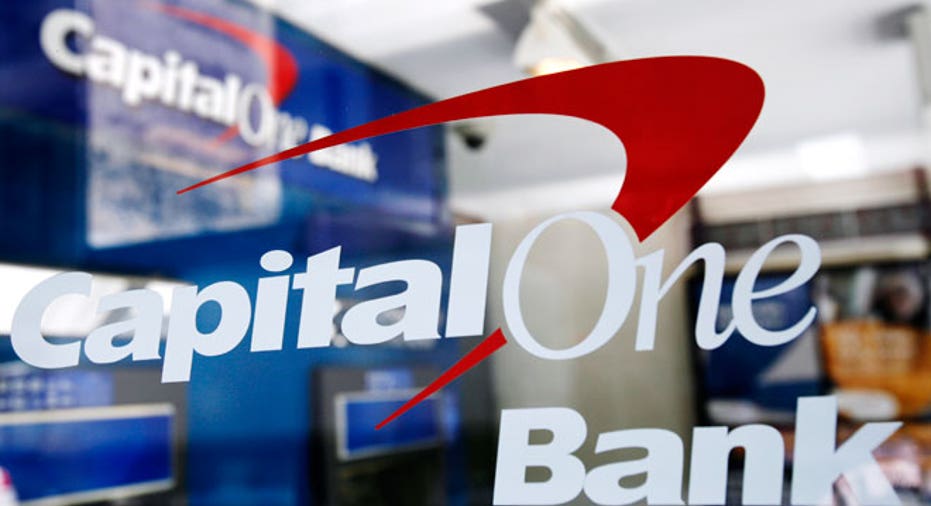How You Can Benefit From the Capital One Settlement

NEW YORK – The Capital One Financial settlement with U.S. regulators over deceptive marketing of credit card "add-on products" means a lot to all consumers, not just Capital One customers, according to consumer advocates.
This is the first enforcement action by the Consumer Finance Protection Bureau, which is about to hit its first anniversary. Ed Mierzwinski, consumer program director of advocacy group U.S. PIRG, says it's significant to the future of the agency that this first move was against a big company over a pernicious practice.
"This is a big event for a young agency," he said. "They brought their first action against one of the biggest, most politically active firms, and that will send a clear message that violations of the law will not be tolerated."
Capital One agreed to pay $150 million to reimburse more than 2 million customers who bought aggressively marketed payment protection and credit monitoring services; customers will get a credit on their accounts or a check in the mail.
What does the CFPB action mean for Capital One customers and everyone else?
1. Stronger warnings for consumers about add-on services
The settlement should show consumers that they need to beware of pitches they hear from credit card issuers, especially when activating a card.
The CFPB says Capital One violated regulations that prohibit call-center vendors from engaging in deceptive tactics to sell the company's credit card add-on products, specifically payment protection plans and credit-monitoring services.
First of all, Mierzwinski said, "Consumers should know that credit protection and monitoring are the worst add-on products you can buy."
Travis Plunkett, legislative director of the Consumer Federation of America, is no kinder, referring to these services as "junk products."
The CFPB also issued a warning to consumers on what to watch out for with these products, primarily that you should be wary of any pitch when you are activating a new credit card. ()
Ryan Schneider, president of Capital One's card business, said, "We are accountable for the actions that vendors take on our behalf. These marketing calls were inconsistent with the explicit instructions we provided to agents for how these products should be sold." ()
2. Customers will get no-hassle refunds.
Capital One is responsible, with oversight, for determining who is entitled to refunds and will either credit current accounts or mail out checks.
The CFPB emphasizes that ease for consumers is its main concern: "It's been important to make sure that the refunds were managed in a way that was convenient to consumers. Consumers are not required to take any action."
The agency says customers will be reimbursed according to how much they spent, and the settlement is just an estimate of how much it will cost.
An additional $60 million goes into the Civil Penalty Fund, which was created under the Dodd-Frank financial reform law as a reserve to reimburse victims and for consumer education and financial literacy programs.
3. Others might benefit directly, too.
"This settlement is not unique and I expect there to be more activity," CFPB director Richard Cordray said at a press conference on Wednesday.
Plunkett said the deceptive practices that got Capital One in trouble are widespread in the industry. "This is a shot across the bow of all companies selling junk financial products and misleading consumers about them - that they better be more careful. It has direct effect and a hugely significant effect on the whole financial services industry," he said.
While Capital One is the only company currently not allowed to market these add-on credit card products at all - they have to get a plan approved by the CFPB before they can resume - Mierzwinski expects other credit card issuers to stop selling them.
"It would be stupid to continue to market this kind of product," he said.
But Brian Riley, who worked at JPMorgan Chase & Co, Citigroup Inc and First Union/Wachovia (now Wells Fargo & Co ) for many years and is now senior research director for the CEB Tower Group, said such practices may be too complicated to unravel because they are already baked into the revenue models for the next three years.
"You can't just unplug it if you're a publicly traded company," he said, adding that some banks may "self-confess" to the CFPB and take their lumps.
4. Other shoes will drop.
Both the CFPB and the Office of the Comptroller of the Currency (OCC), which partnered on the action against Capital One, have web-based complaint systems where consumers can enter information. The CFPB says it will follow up with any Capital One customers who feel they didn't get a refund when they were due one, and also for customers of other banks who feel they've been duped.
The CFPB is currently collecting consumer complaints on a number of other topics and following up on them, including student loans, other credit card complaints and credit report errors. (see)
While future enforcement actions are rarely telegraphed in advance, Plunkett hopes that next on the agenda are mortgage services abuses and payday lending practices. And he has high hopes for what is to come.
"They probably have a lot of things they are investigating, and it's a good sign that they didn't pick an obscure corner of the marketplace to get started," he said.



















